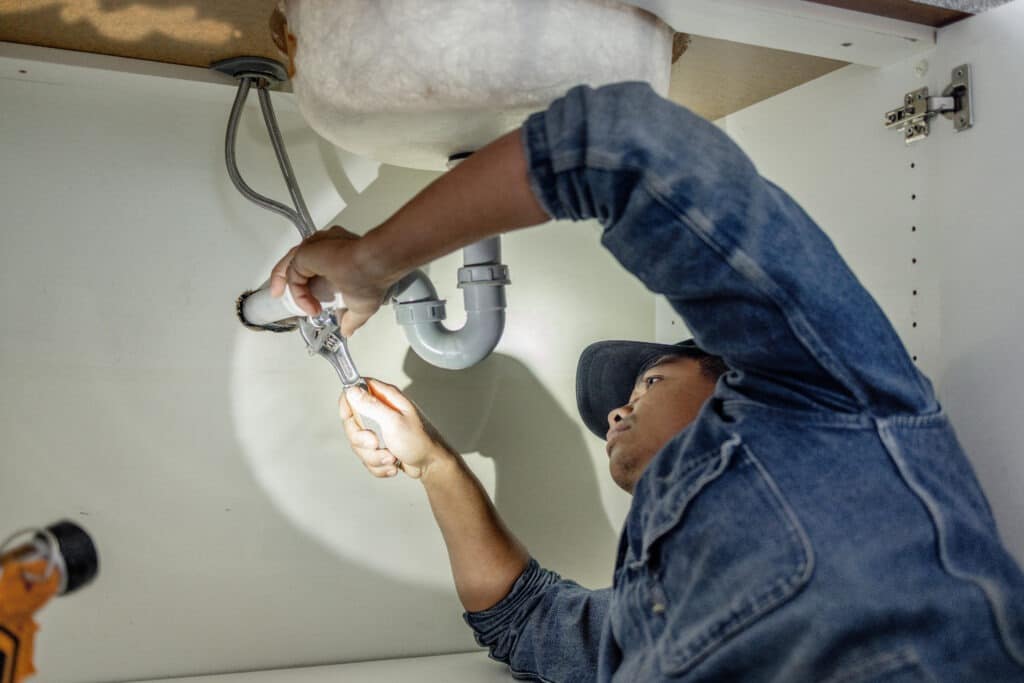The article author is making several good observations on Essential DIY Bathroom Plumbing Tips Every Homeowner overall in the article down below.

For new homeowners, understanding and maintaining bathroom plumbing can save both money and time by protecting against costly concerns down the line. Right here are some necessary bathroom plumbing ideas to aid you keep every little thing running smoothly.
Acquaint Yourself with the Key Shut-Off Shutoff
Understanding where the primary water shut-off valve is located in your house is essential. This enables you to swiftly shut off the water system in case of significant leaks or during plumbing emergency situations, stopping substantial water damages.
On A Regular Basis Inspect for Leakages
Little leakages can cause big issues. Routinely examine under sinks, around toilets, and near pipes components for any kind of indicators of leaks. Look for dampness, little drips, or corrosion. Catching and repairing leaks early can protect against much more severe damage and conserve water.
Do Not Overlook Slow Drains Pipes
If your sink or bath tub is draining pipes slowly, it's frequently an indicator of a clog creating. Addressing this early can avoid a total clog. Utilize a plunger or a plumbing technician's snake to clean out debris. Stay clear of using chemical drainpipe cleaners as they can damage your pipelines gradually.
Know What Not to Flush
Toilets are not garbage disposals. Stay clear of purging anything apart from toilet paper and human waste. Things like wipes, womanly hygiene items, and cotton bud should be gotten rid of in the trash to stop blockages and sewage system back-ups.
Set Up Strainers in Drains
Place filters in your sink and bathtub drains pipes to catch hair and various other debris before they enter your pipes system. Cleaning the filters on a regular basis will assist prevent build-up and keep water moving freely.
Preserve Your Water Heater
Ensure your hot water heater is set to a suitable temperature level (commonly around 120 degrees Fahrenheit) to prevent hot and lower power usage. Flush the storage tank every year to remove debris accumulation, which can decrease the performance and life expectancy of your heating unit.
Update Your Fixtures
If your home has older fixtures, take into consideration upgrading to more effective designs. Modern bathrooms, showerheads, and taps are developed to make use of much less water while providing great pressure, which can significantly lower your water bill and environmental impact.
Beware with Do It Yourself Plumbing Repairs
While it's alluring to manage all home fixings by yourself, be cautious with pipes. Some issues might call for specialist knowledge, particularly if they entail main water lines or drain fixings. Hiring a specialist can in some cases be a lot more economical than DIY, particularly if it stops further damages.
Get Ready For Cold Weather
Protect your pipelines from freezing during winter by insulating pipelines in unheated areas like basements, attic rooms, and garages. Throughout severe cool, let cold water drip from faucets served by revealed pipelines to help stop cold.
Arrange Normal Upkeep
Think about organizing annual examinations with an accredited plumbing. They can identify concerns that you could miss out on, such as hidden leaks or damage on pipes and fixtures. Normal upkeep aids expand the life of your plumbing system and can avoid emergencies.
Verdict
Understanding and maintaining your home's washroom pipes can prevent several typical concerns. By following these crucial ideas, you can ensure your bathroom stays functional and effective, conserving you time and money in the long run.
Essential Plumbing Tips for Homeowners: Keep Your Pipes Flowing Smoothly
As a homeowner, understanding the basics of your plumbing system can save you time, money, and a lot of headaches. Plumbing issues can range from minor annoyances like dripping faucets to major problems like burst pipes that cause significant damage. This guide provides essential tips to help you maintain your plumbing system and tackle common issues.
Understanding Your Plumbing System
Supply System: Brings fresh water into your home from a municipal source or a well. Drain-Waste-Vent System: Removes wastewater and vents sewer gases outside. Fixtures and Appliances: Includes sinks, toilets, showers, dishwashers, and washing machines. Basic Maintenance Tips
Regular Inspections: Periodically check for leaks, corrosion, and other signs of wear and tear. Look under sinks, around toilets, and near water heaters. Know Your Main Shut-Off Valve: In case of a major leak, you’ll need to shut off the water quickly. Ensure everyone in your household knows where the main shut-off valve is located. Prevent Frozen Pipes: In cold climates, insulate exposed pipes and let faucets drip during extreme cold to prevent freezing. Use Strainers: Install strainers in sinks and tubs to catch hair, food particles, and other debris that can cause clogs. Common Plumbing Issues and Solutions
Clogged Drains:
Prevention: Avoid pouring grease down the drain and use drain screens to catch debris. DIY Fix: Use a plunger or a plumbing snake to clear minor clogs. For stubborn clogs, a mixture of baking soda and vinegar can sometimes help. Leaky Faucets:
Prevention: Replace washers and seals regularly. DIY Fix: Turn off the water supply, disassemble the faucet, and replace worn parts.

Call Today